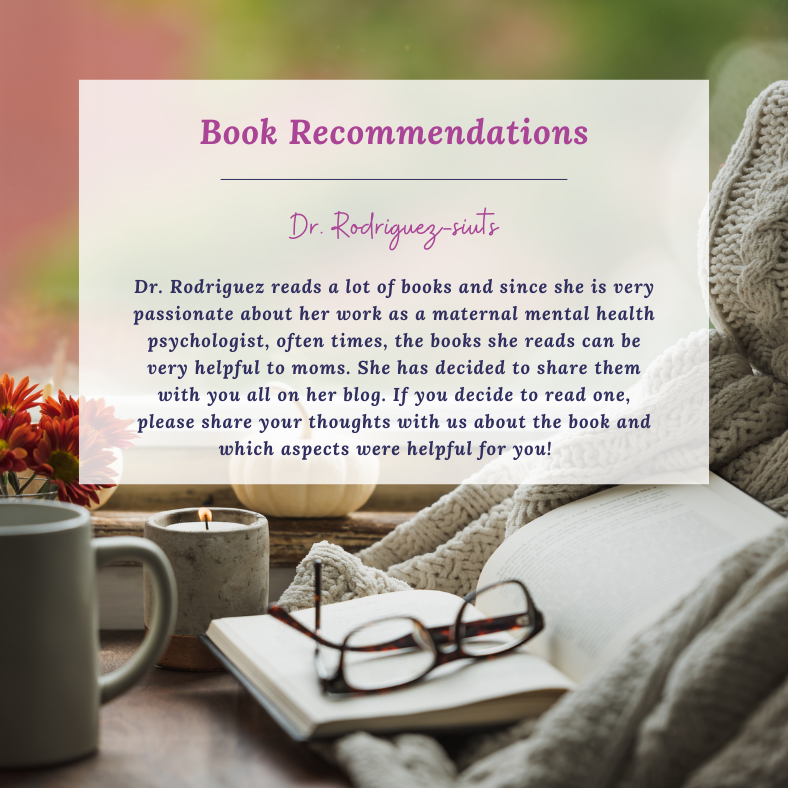|
Mayo Clinic Guide to Your Baby's First Years
Being a new mom is an overwhelming experience. I often encourage moms to stick to reading books or consulting with their doctors for information to avoid getting misinformed. The Mayo Clinic Guide to Your Baby’s First Years is a great resource because it is comprehensive and discusses common illness, concerns, and developmental changes that parents face during a child’s first few years of life. -Dr. Rodriguez-Siuts
0 Comments
ABC rejected the commerical about postpartum recovery, claiming it was "too graphic." By Ashleigh Carter| Published on 2/11/2020 "A postpartum ad that was supposed to air during the Oscars is gaining attention online after ABC rejected it for being too "graphic."
The 60-second commerical made by Frida Mom shows a new mom waking up in the middle of the night and struggling to use the bathroom, while using different products to help her, including mesh underwear. The ad ends, saying "Postpartum recovery doesn't have to be this hard," followed by products the company sells. Frida Mom posted their ad on YouTube and introduced it by saying, "The ad you're about to watch was rejected by ABC and the Oscars from airing during this year's award show. It's not 'violent, political' or sexual in nature. Our ad is not 'religious or lewd' and does not portray 'guns or ammunition.' 'Feminine hygiene & hemorrhoid relief' are also banned subjects." The compnay submitted the commercial to air during the 2020 Oscars, but according to Health.com, it was rejected for being "too graphic with partial nudity and product demonstration." Photo: via Sarah DiGregorio"My daughter’s health needs changed the way I think about food, control and pleasure." By Sarah DiGregorio "If eating is about pleasure, at least for me, cooking is about control. Knowing how to make onions sizzle gently in oil and start to go limp, then transparent, then light brown, then sweet and dark. It’s a transformation that’s entirely predictable, a product of muscle and sense memory. If I pay attention in the kitchen, if I am careful, nothing goes wrong.
When I was pregnant, I worked at Food & Wine magazine. Editing recipes, the biggest part of my job at the time, is a meticulous and satisfying exercise in imagining all the mistakes that could be made in a kitchen and then trying to prevent them. It was 90 degrees out as my stomach started to swell, but in the office we were cooking and tasting crunchy escarole salads, potato gratin, roasts and gravy, butter cookies and layer cakes. Summer at a monthly cooking magazine is about Thanksgiving, and then the holidays. I liked to think of my daughter growing plump and happy and smart on everything I ate. Though I’d cut out alcohol, raw fish and cured meats, I ate everything else the test kitchen produced, imagining that this was the embryonic beginning of giving her a healthy, pleasurable relationship with food and her body. “Eating for two” is an irritating phrase, but I saw it as the first benefit of being alive that I could share with her. Despite my well-laid plans, it turned out the placenta was failing. My daughter was not, actually, living the fetal high life. My body was keeping all that good food for itself — the snow-white slice of coconut layer cake, the bitter sautéed winter greens. First she fell off her growth curve and then, a fetus slowly starving, her body ground to a halt. She was not safe inside me, so the doctors took her out nearly 12 weeks early, an emaciated, shivery bundle, a 1-pound 13-ounce creature of skin and bones." |
Archives
August 2023
Categories
All
|
|
SANDRA RODRIGUEZ-SIUTS, PH.D., LLC
9590 E Ironwood Square Drive, Suite 210 Scottsdale, AZ 85258 Phone: (480) 473-5411 Fax: (480) 436-6900 |
© Copyright 2023 Sandra Rodriguez-Siuts, Ph.D. - All Rights Reserved


 RSS Feed
RSS Feed




